Editor’s Note: As the Afghan crisis exploded suddenly and took the center stage of the international political scene, its reverberations on countries in neighboring regions, including Armenia, are important to watch carefully. The following article is a detailed scrutiny of the players involved in that complex saga, which particularly concerns Afghanistan’s two large neighbors, the countries of India and Pakistan
As soon as two blasts took place outside the Kabul airport, killing at least 110 people including 13 US servicemen, Islamic State-Khorasan Province (ISKP) came forward to claim the responsibility. A commander of the ISKP named Amaq issued a statement on its Telegram channel wherein he claimed that a suicide bomber, Abdul Rahman al-Logari, managed to reach near a group of US soldiers, translators, and collaborators and detonated his explosives.
Strikingly, the statement also claimed that members of the Taliban were also amongst its casualties. Experts believe that the special mention of Taliban in the video was a part of the rhetoric that is being tried to be created in a post-US withdrawal Afghanistan.
Global watchdogs have previously highlighted that ISKP, which is active in Afghanistan and claims to be a unit of the ISIS [the Islamic State], has nothing to do with the original ISIS operating elsewhere in the world. In fact, ISKP is a clever ISI [Inter-Services Intelligence, of Pakistan] creation to help in ensuring deniability to the Pakistani intelligence agency as Pakistan was being blamed for whatever was being done by the Taliban.
Get the Mirror in your inbox:
Experts believe that Pakistan created ISKP by planting Lashkar-e-Taiba (LeT) operatives in leadership position in the outfit. The projection of ISKP as an independent player in Afghanistan against the Taliban also helped Pakistan to successfully push a narrative that Taliban can be a reliable partner to the US and the West in fighting international terrorist groups in Afghanistan. On the other hand, ISKP has a specific purpose to Pakistan’s ISI. It could be used to eliminate any Taliban commander who wasn’t falling in line.
The Pakistani project in Afghanistan has nearly succeeded with one Pakistani proxy Taliban becoming a ‘good boy’ and another Pakistan proxy ISKP becoming a ‘bad boy’. The latest attack on Kabul airport is indicative of the fact that ISI’s operation has been launched in full swing.
Counter terrorism experts believe that currently, Pakistan’s ISI is coordinating the joint efforts of Taliban, ISKP, and LeT to provide support to the Taliban through the game of good and bad boys, with LeT being the major player.
A closer look at the strongholds of the ISKP suggests that it is being strengthened and grown in the nursery of Pakistan along the Durand Line. It is believed that similar to Taliban’s sub-set Haqqani Network, the ISI is using the Afghan provinces sharing borders with Pakistan to breed ISKP terrorists.
According to global watchdogs like RAND, Stimson Centre, and Centre for Strategic and International Studies (CSIS), the strongholds of the outfit are in Nangarhar and Kunar provinces bordering Pakistan. According to CSIS, these two provinces on the border with Pakistan have “served as bases of operation for ISK-P since its founding.” Currently, Pakistani intelligence agency ISI has managed to expand the organization elsewhere in Afghanistan including northern provinces of Faryab and Jawzjan.
Having established the epicenter in the bordering areas, Pakistan conveniently ensured the movement of other Pakistan based terrorists in the ISKP in Afghanistan and provided them safe shelters when Afghan security forces attacked them.
It is important to note that ‘Emir’ or the chief of ISKP, Mawlawi Abdullah @ Aslam Farooqui is a Pakistani citizen and had confessed about his connections with Lashkar-e-Taiba when the Afghan NDS arrested him for attacking a Gurdwara in Kabul and butchering 27 members from the Sikh minority community.
After being detained, Aslam Farooqui was replaced by Maulvi Mohammed as the new chief of the outfit. Similar to Farooqui, Maulvi Mohammad was also trained by the ISI and was associated with the LeT.
The links between the LeT and the ISKP re-emerged last year on April 14th when Afghan intelligence agency National Directorate of Security (NDS) arrested a top commander of ISKP, Munib Mohammad, who happened to be a Pakistani national had accepted about his connections with the Pakistani intelligence agency during interrogation. Interestingly, the ISI made him occupy one of the top seats of IS-KP by making him a member of the Central Council of the outfit. Moreover, he was utilized by the ISI for liasoning with other terrorist outfits as a statement by the NDS on his arrest stated that he was “coordinating with terrorist groups and intelligence agencies of the region” and was working with “intelligence agencies of the region”, indicating ISI’s role in propping the outfit. The statement further highlighted that he was also working with the LeT, Haqqani Network, Taliban Peshawar Shura, and several other Pakistan sponsored outfits.
In the mid of last year, the name of ISI officer Bilal @ Zarqawi emerged, who led a batch of LeT cadres to make them join the ISKP in Dangam district of Kunar province. Later on, he began commanding ISKP operations in Jalalabad. Bilal is an old handler of LeT operations and had previously served as in charge of terror camp of LeT in Muzaffarabad in Pakistan-occupied Kashmir. Similarly, two important pointsperson between the ISI and the ISKP were Ahmadullah and Qari Ziaur Rehman, who were respectively appointed as ISKP’s governor and deputy governor in Kunar province.
According to a report of Long War Journal, an independent watchdog on Afghanistan, “a number of Pakistani groups are known to operate inside Afghanistan and fight alongside the Taliban, and top leaders of Pakistani terror groups have been killed inside Afghanistan. Additionally, a number of Pakistanis are known to fight in the ranks of the Islamic State’s Khorasan Province (ISKP).”
The argument was reiterated in the United Nation’s “11th Report of the Analytical Support and Sanctions Monitoring Team,” released in May 2020, which had stressed, “One Member State reported that the total number of Pakistani nationals fighting with terrorist groups in Afghanistan may be as high as 6,000 to 6,500.” It further added that the largest number of Pakistani terrorist operating in Afghanistan belonged primarily from three outfits – Tehrik-e-Taliban Pakistan (TTP), Lashkar-e-Taiba (LeT) and Jaish-e-Mohammed (JeM).
Similar to LeT, cadres of JeM have also infiltrated ISKP and have occupied top ranks of the organisation. A report of the Middle East Institute had highlighted that ISKP has a ‘sizeable number’ of terrorists from other Islamist militant groups and stressed, “the current emir of ISKP, Mawlawi Aslam Farooqi, is an ex-militant commander of Lashkar-e-Taiba, while previous emirs were recruited from TTP and other Afghan Taliban groups.”
The desperate attempts to ISI to infiltrate the cadres of Pakistan sponsored outfits in the ISKP began emerging last year after arrest of top commanders of ISKP who previously served in Pakistan based outfits. The involvement of Pakistani terrorists in attacks conducted by the ISKP in Afghanistan kept surfacing throughout last year.
On these developments, Afghan intelligence officials had stated to the press that ISI accelerated pushing LeT and JeM cadres after the Doha peace agreement in February 2020 between Taliban and the US Special Representative for Afghanistan Reconciliation Zalmay Khalilzad.
After signing of the peace deal in February 2020, several LeT cadres were appointed as the governors and front commanders of the ISKP to ensure that the group remains being commanded by the ISI. It was also revealed that besides infiltration of Pakistan based cadres to the top ranks of ISKP, the ISI also created the financial and logistic support network to speed up outfit’s operations.
The full fledged launch of ISI’s new game plan on Taliban and ISKP has already begun jeopardizing the security interests of the US-led coalition. Earlier, developments like recruitment of Indian nationals by the ISI for ISKP and Kabul Gurdwara attacks have proved it detrimental for security interests of India as well. Following the attacks, President Joe Biden, who is facing an intense backlash in the US over Kabul airport attack, vowed to retaliate and “not forgive” the perpetrators. It would be interesting to see whether he holds the source of the attack, the ISI, accountable or just gives it the cold shoulder.

